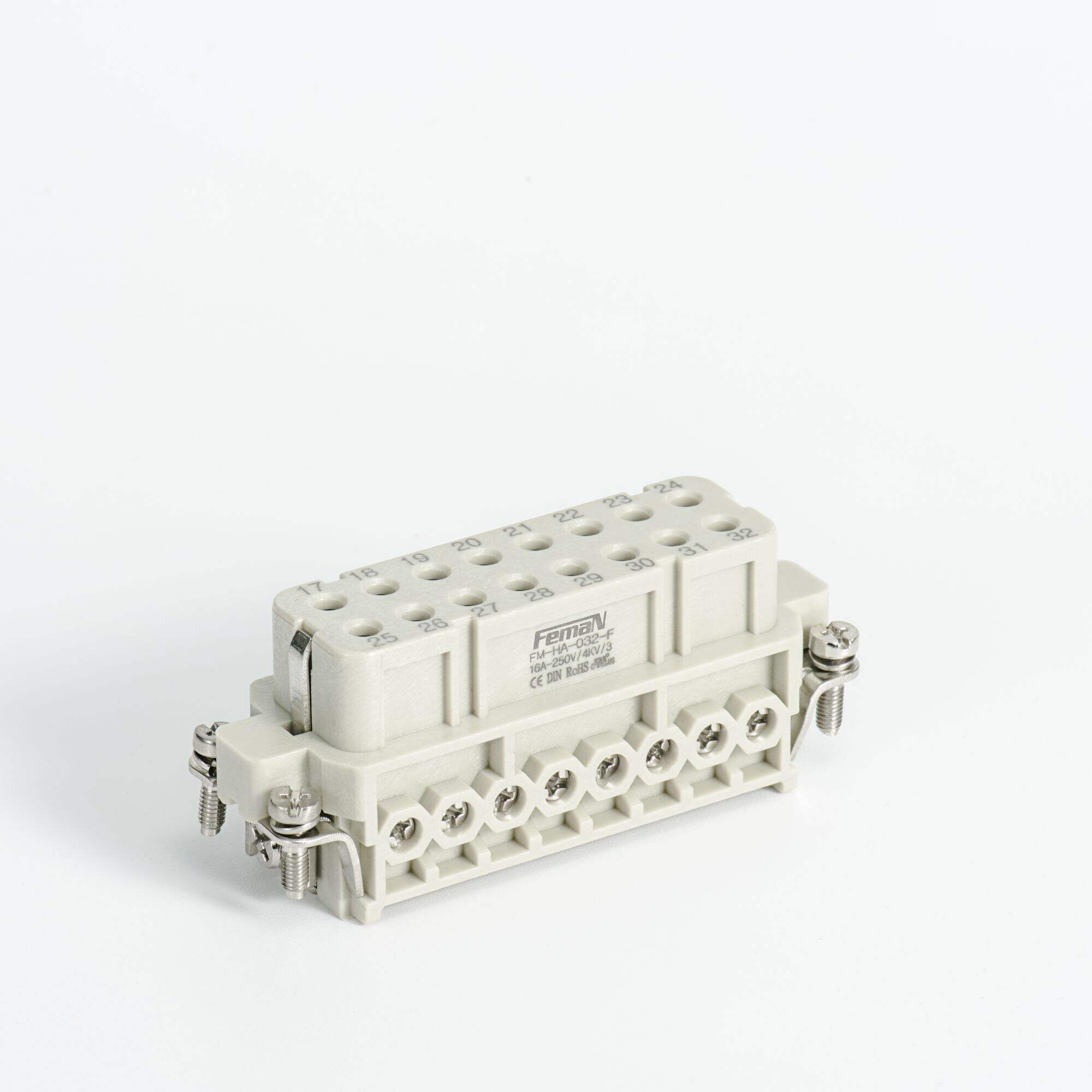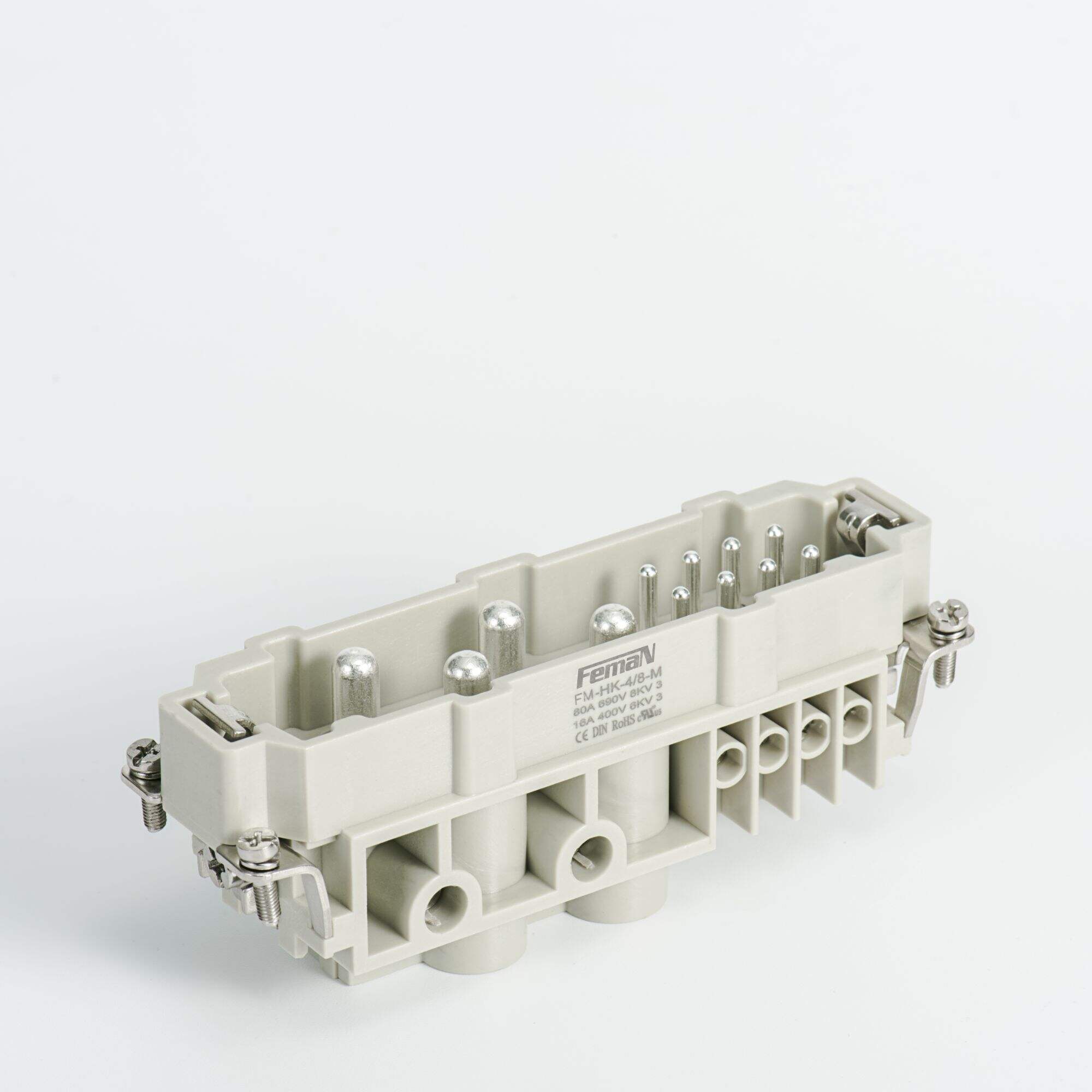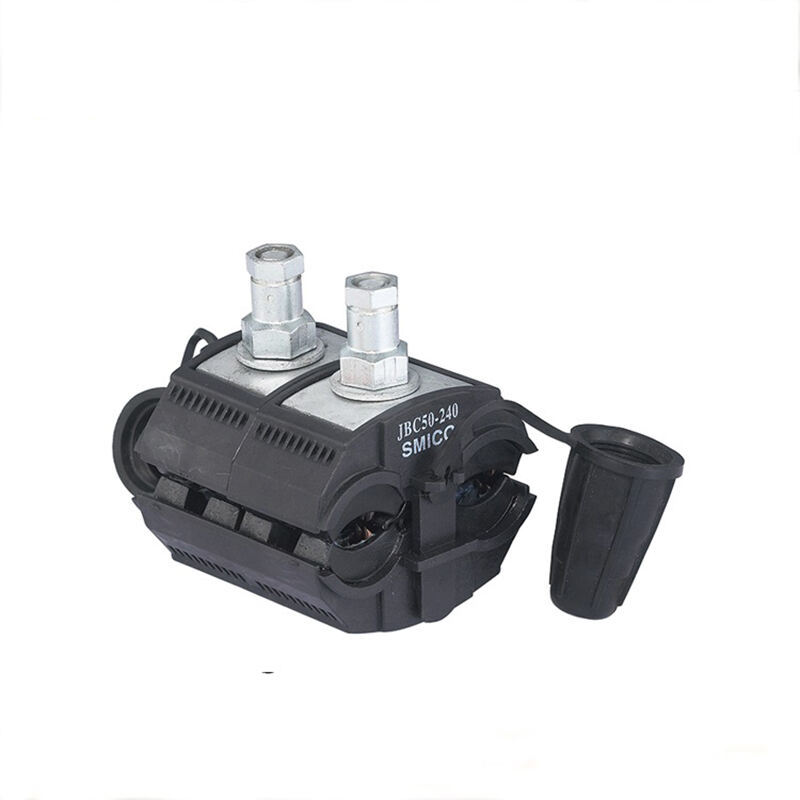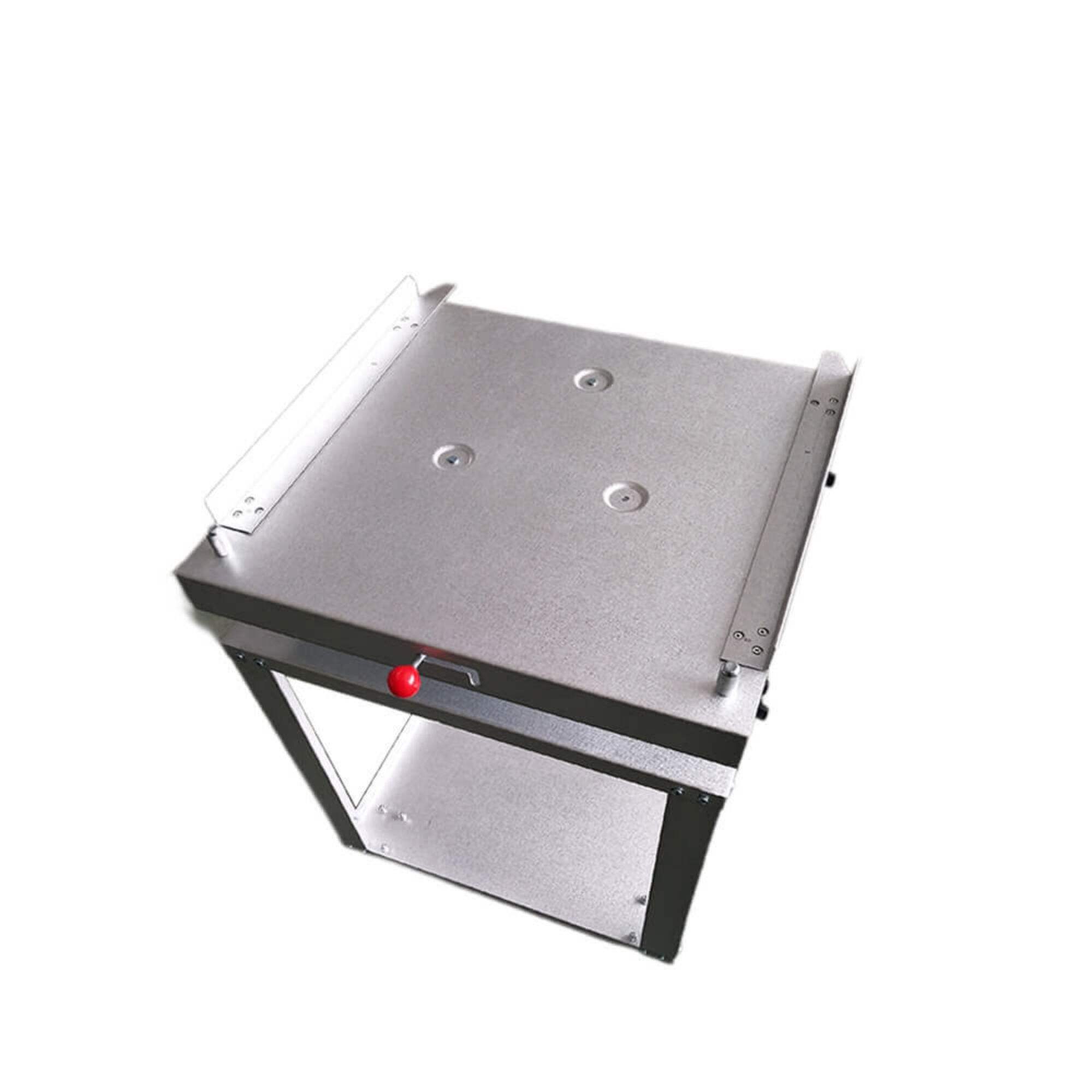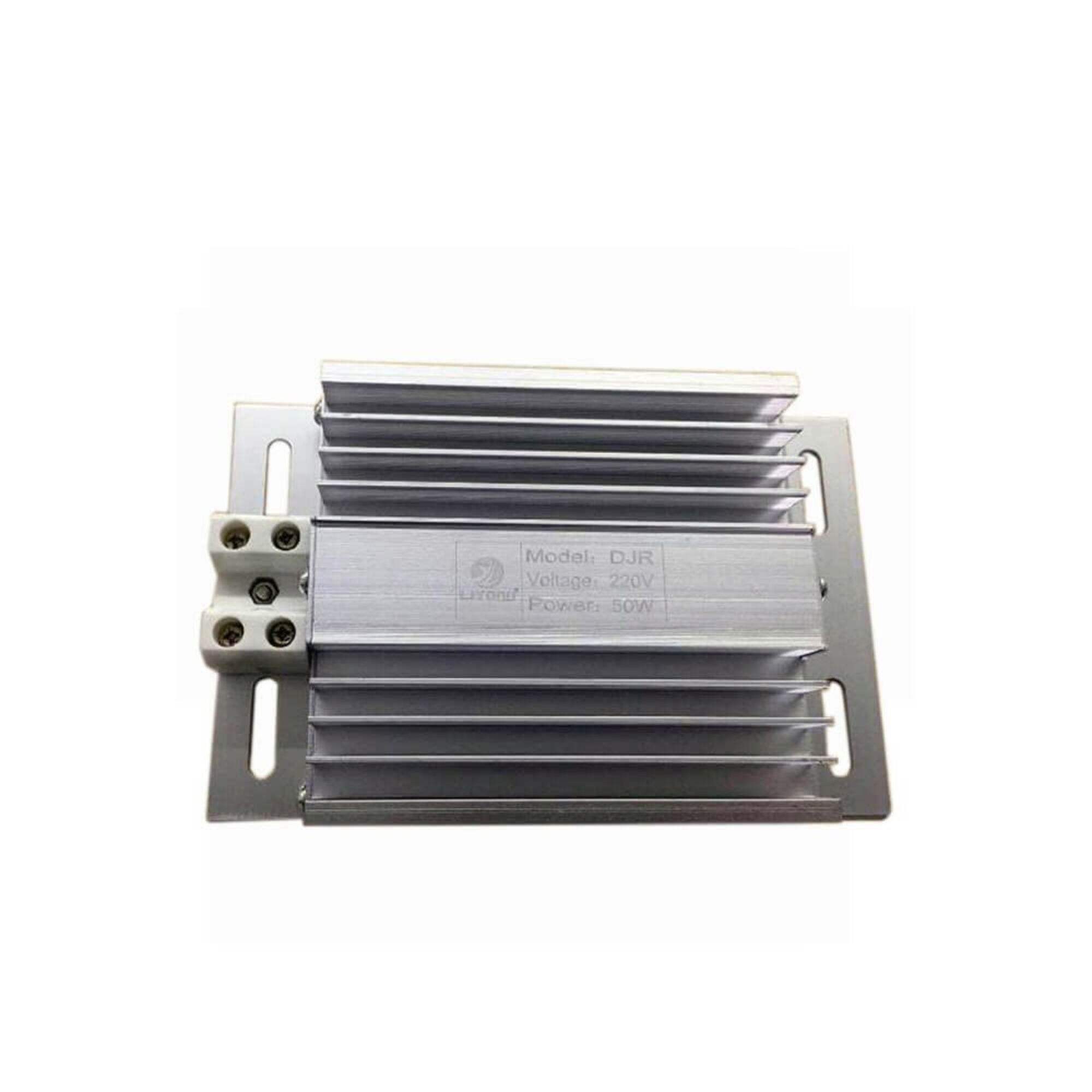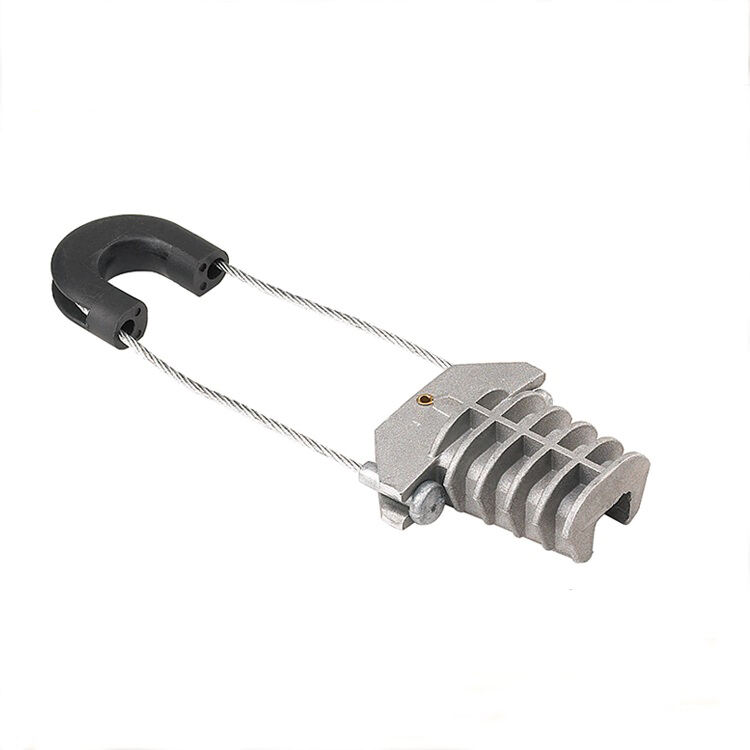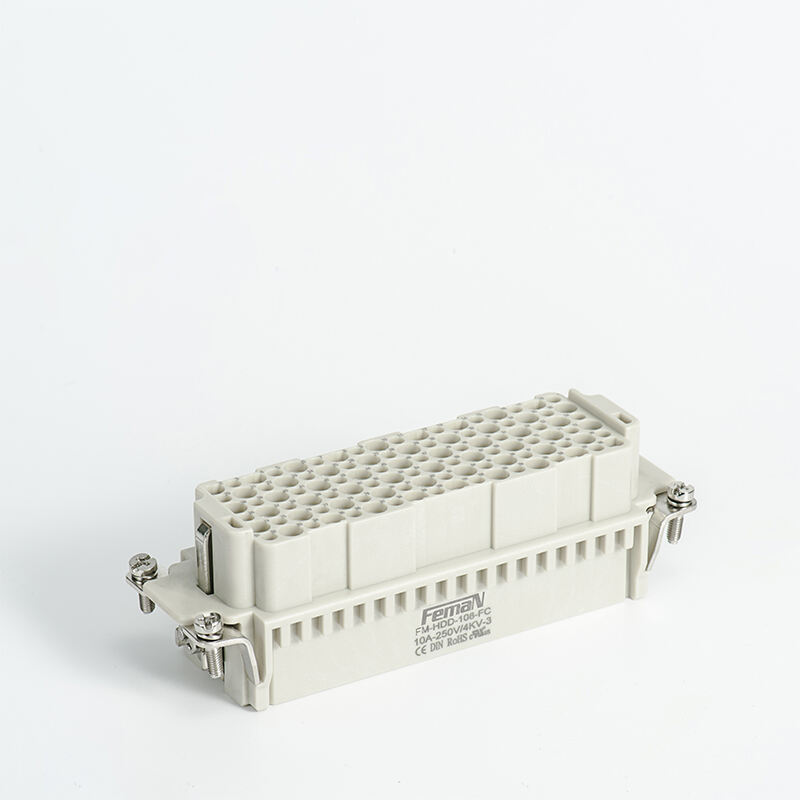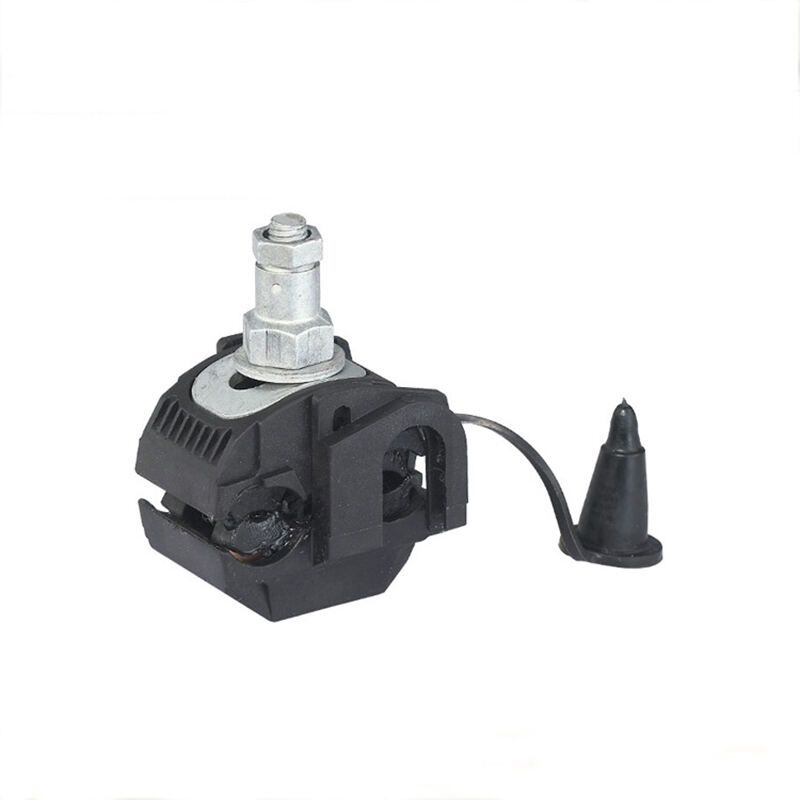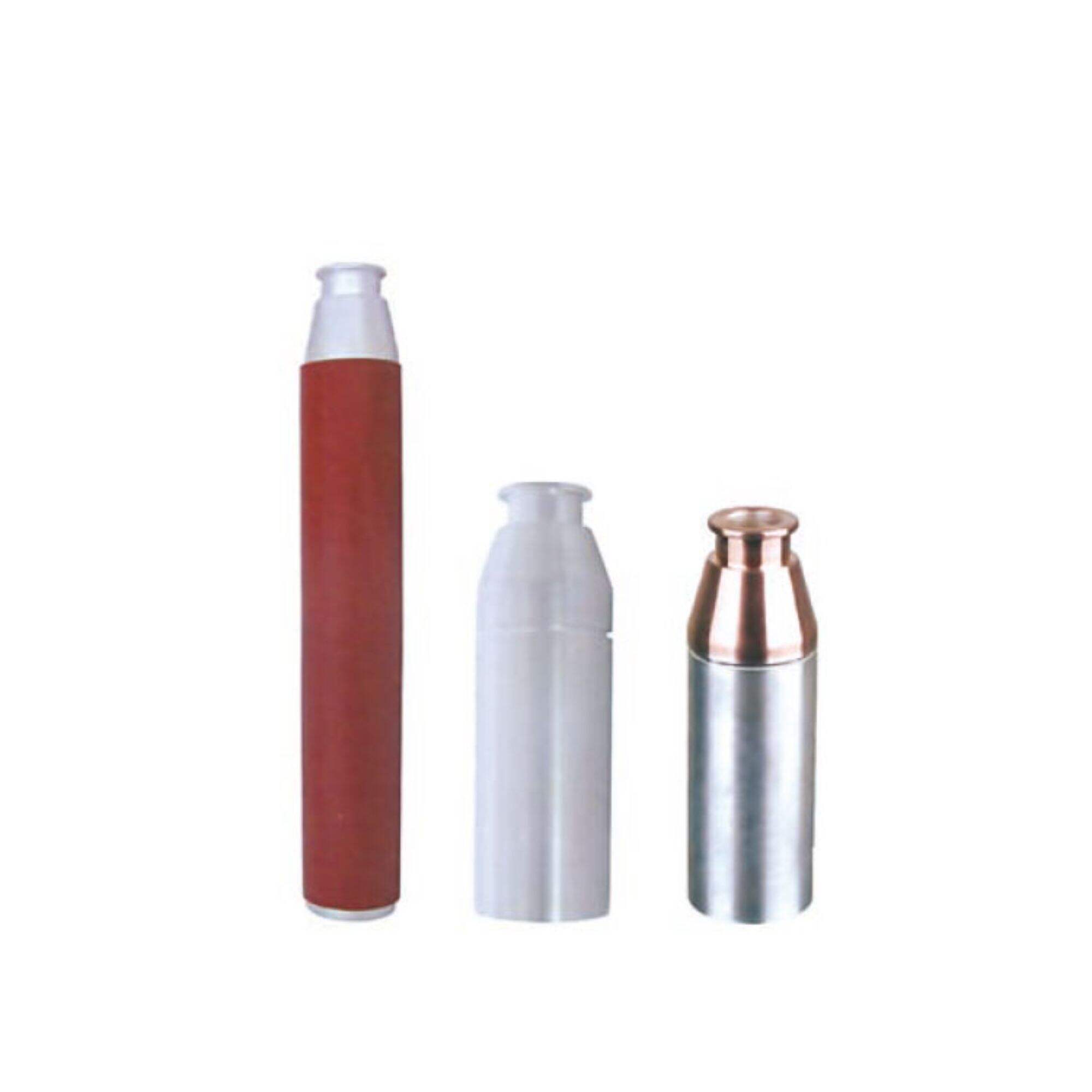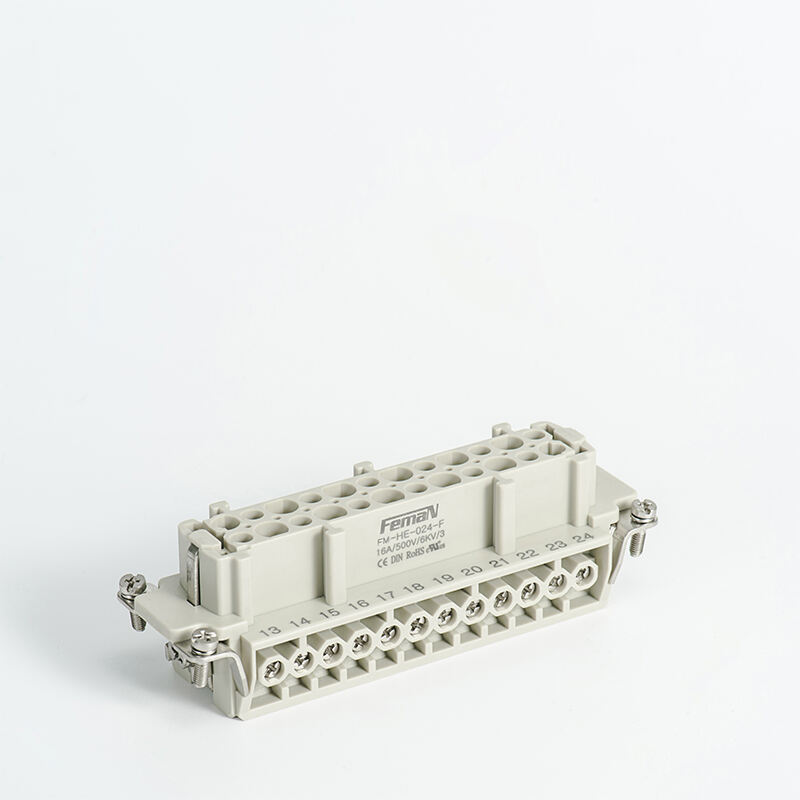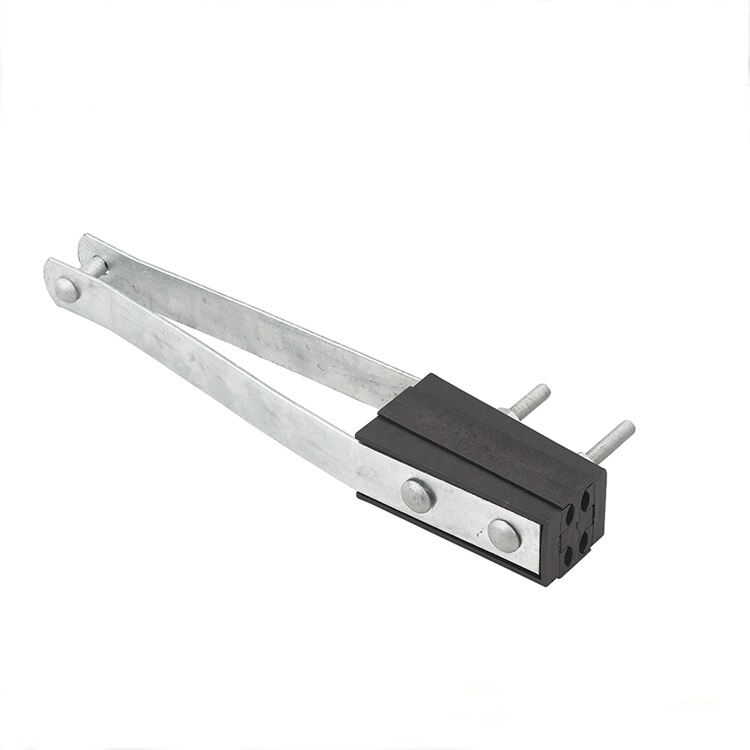
Overview
Parameter
Inquiry
Related Products
Feature & Benefit
Simple installation and convenient maintenance
High mechanical, electrical load capacity
Well performance under extreme environment
Standards compliance with CE, UL, RoHS, DMT
Product Description
NES-B3 low voltage fully supported Aerial Bundled Conductors
Material:Mild steel ,nylon plus fiber glass
Product property:It is used to terminate 4-core of aerial bundle conductor .Its function is fixing and tightening the insulation conductor .
The arms are made of hot-dip galvanised steel. A bolt enables the clamp to be easily dismantled manually and an- chored on a bracket fixed to a pole or façade.
- The cleats are made of UV resistant, glass fibre reinforced synthetic material.
- The conductors are attached using a combination of bolts and cleats. Two 17mm shear head nuts are used to control
the tightening torque.
- Each conductor runs through a separate channel. The conductors are anchored by distributing the loads, protecting
the insulation.
- A large opening facilitates the passage of the conductors between the clamp arms.
- The mechanical resistance is 3300daN for the NES-B2, and is greater than 5000daN for the NES-B3.
This clamp meets the criteria of the DIN VDE 0211 standard.
Implementation
- Unscrew the nuts.
- Open the A.B.C and insert each conductor into one of the channels.
- Screw the nuts alternately using a 17mm spanner until the shear head breaks. The 21mm head is only provided for
possible dismantling.
- Anchor the clamp on a hook.
- Additional tightening is achieved automatically by the cleats.
Technical specification
| · Dimension | ||
| Weight: | ||
| Cable Size: | 4*(25-120)mm² | |
| Specification | ||
| Use: | For dead-ending of cables with round shape. | |
| Construction | Component | Material |
| Body and Wedge | Corrosion proof aluminum alloy | |
| Bail | Hot-dip galvanized steel | |
| Installation | Open the clamp and insert conductors between the wedges. Springs keep the clamp in an open position during the installation. Nuts must be tightened up uniformly until proper torque is reached. After reaching a proper torque re tightening is not allowed. | |
| Standard | EN 50-483 | |
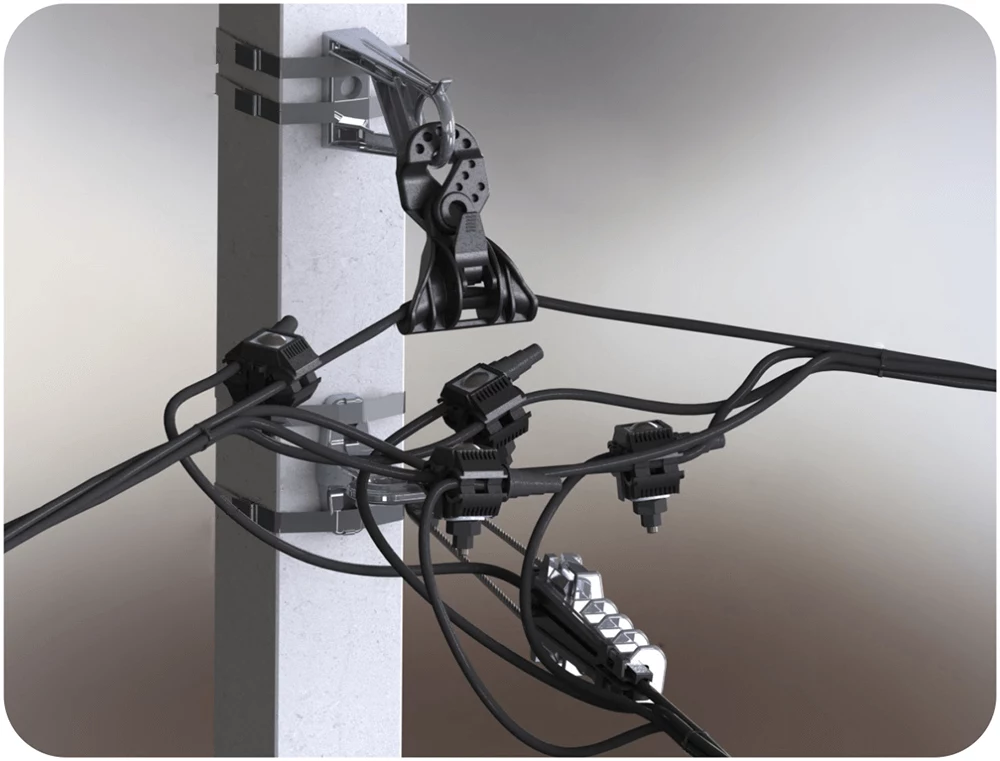
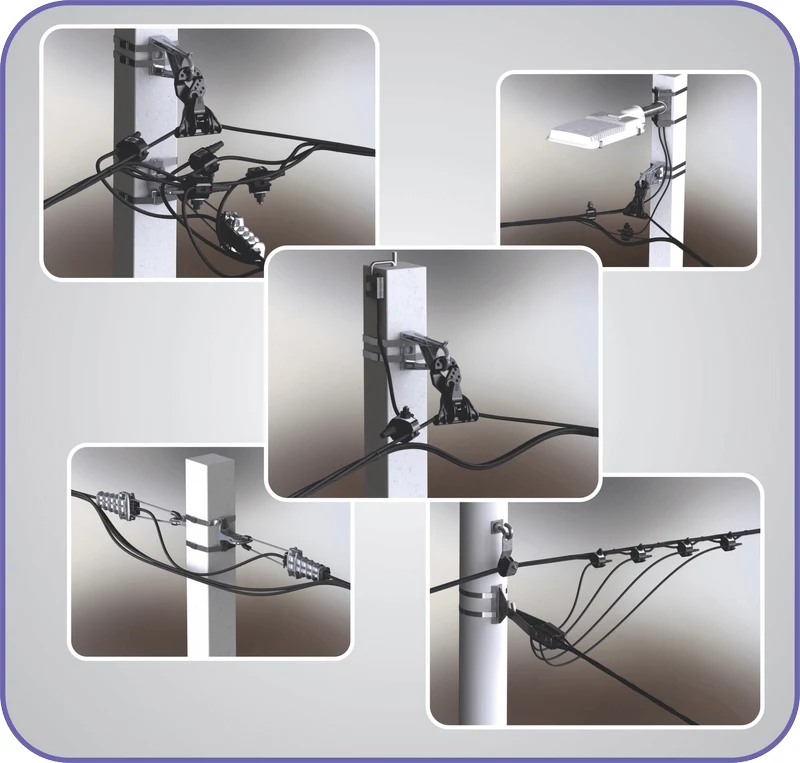

 EN
EN
 AR
AR
 BG
BG
 HR
HR
 CS
CS
 DA
DA
 NL
NL
 FI
FI
 FR
FR
 DE
DE
 EL
EL
 HI
HI
 IT
IT
 JA
JA
 KO
KO
 NO
NO
 PL
PL
 PT
PT
 RO
RO
 RU
RU
 ES
ES
 SV
SV
 CA
CA
 TL
TL
 IW
IW
 ID
ID
 LV
LV
 LT
LT
 SR
SR
 SK
SK
 SL
SL
 UK
UK
 VI
VI
 SQ
SQ
 ET
ET
 GL
GL
 HU
HU
 MT
MT
 TH
TH
 TR
TR

